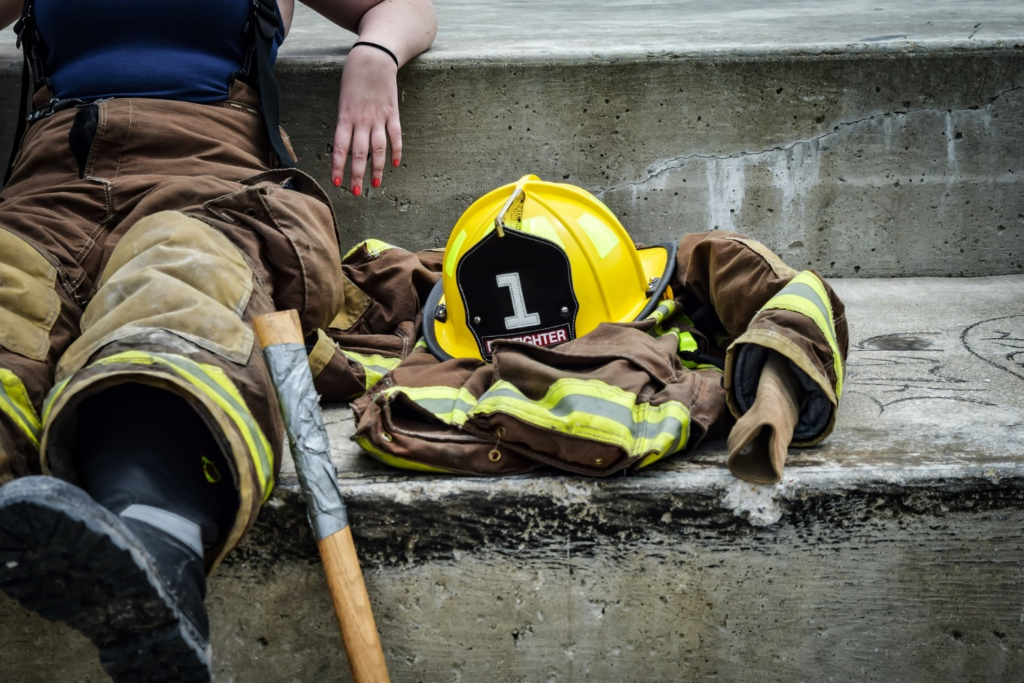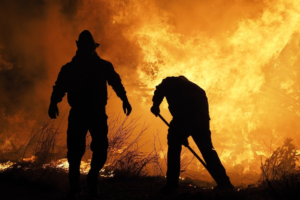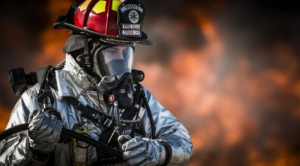
- admin
- January 1, 2021
- 7:49 pm
- No Comments
The Importance of Realistic Firefighter Training
All civil service jobs are trying in one way or another. Law enforcement and court officers have to deal with criminals and life-threatening situations, civil service administrators have to go through the labor of overseeing civil service employments, and elementary school teachers have to deal children.
All civil servants have difficult tasks, but being a firefighter is one of the most arduous government jobs. Their responsibilities include addressing any and all fire emergencies in their jurisdiction. That can range from a small, localized fire or something as large and uncontrollable as a wildfire.
 Worse still, the size of the fire doesn’t necessarily dictate the risk. For instance, consider a small fire in an apartment with many elderly people. Since the room is small, toxic fumes and smoke can quickly fill up the room, making it difficult to safely move. Additionally, you also need to evacuate elderly people, further complicating the issue.
Worse still, the size of the fire doesn’t necessarily dictate the risk. For instance, consider a small fire in an apartment with many elderly people. Since the room is small, toxic fumes and smoke can quickly fill up the room, making it difficult to safely move. Additionally, you also need to evacuate elderly people, further complicating the issue.
Being a firefighter is mentally and physically taxing. Besides that, a lot of preparation and training go into becoming one. Someone who wants to become a firefighter in NYS needs to take a written exam and a job simulation exam. The latter alludes to an important point: realistic firefighter training is critical. Here’s why.
Decision-Making
A study in 2015 by Cohen-Hatton, Butler, and Honey found that normative decision-making models failed to explain how firefighters make decisions. They found that firefighters made decisions according to past experiences and gut feelings. Specifically, they found that 80% of the examined firefighters relied on experience and instinct to make their decisions.
Other researchers and authors have corroborated these findings. For instance, Gary Klein wrote that some firefighters simply know what to do in a situation, almost intuitively. All of this highlights the importance of experience in developing an effective and competent firefighter.
Experience
Though practice and theory are often seen as diametrically opposed, they operate according to the same mechanism: forming habits. When you acquire information, you’ll retain and understand it if you go over it multiple times in your head. That’s because each time you reflect on the information, your brain gets better at it. As a result, you gain a deeper understanding of what you studied.
Practice works in exactly the same way. As you repetitively engage in an action, your brain rewires itself to get better at it. The adage “practice makes perfect” is based on our brain’s ability to adapt to repeated exposure to some stimulus. People who play sports, instruments, etc. all experience this. Even something as mundane as writing or reading is the result of our brain adapting to repeated exposure.
 As we form habits, not only do we get better at the habituated behavior, but we can also tell when something’s wrong. Repeated exposure helps our brain pick up on patterns, as well as deviations from those patterns. This kind of knowledge (the type associated with habits and experience) is much more quickly accessible and easily processed than factual knowledge.
As we form habits, not only do we get better at the habituated behavior, but we can also tell when something’s wrong. Repeated exposure helps our brain pick up on patterns, as well as deviations from those patterns. This kind of knowledge (the type associated with habits and experience) is much more quickly accessible and easily processed than factual knowledge.
That’s not to say that firefighters don’t use knowledge other than their experience; rather, it means that they know when to use what information. Additionally, it doesn’t mean that experience can’t be wrong. In fact, being wrong is part of what builds a competent firefighter (as long as it’s not a pattern). The frequent deferral to experience is because of the nature of the job: firefighters need to make quick decisions.
Training
The importance of experience and the urgency of the job make realistic firefighting training important. The fact of the matter is that you can’t control what you experience. If you experience a string of, say, Class C fires, you become very good at handling electrical fires. However, you haven’t been exposed to any Class B fires, which means your performance with them may be wanting.
In this scenario, you can control what you learn from those experiences. However, you can’t control what you experience. This makes competence a product of skill and the right kind of experience. This is where realistic firefighter training comes in. The training gives the firefighters control of their experience. In the above situation, that firefighter could skew their training toward Class B fires.
 Whether this training actually works is entirely contingent upon the realism of the training. If the training is artificial, it won’t properly mimic a real fire. As a result, the firefighter’s training experience won’t have much or any carryover to the real thing. Realistic firefighter training is critical because it allows firefighters to fill gaps in their experience, leading to more complete firefighters.
Whether this training actually works is entirely contingent upon the realism of the training. If the training is artificial, it won’t properly mimic a real fire. As a result, the firefighter’s training experience won’t have much or any carryover to the real thing. Realistic firefighter training is critical because it allows firefighters to fill gaps in their experience, leading to more complete firefighters.
However, before you have to deal with realistic firefighter training, you need to qualify to become a firefighter. That requires sitting a civil service exam, and studying for that is hard (to say the least). However, we can help you on your journey toward becoming a firefighter. At Civil Service Success, we provide NYC Firefighter preparation classes that ensure you’ll top your batch. Register now to ace your exam.

